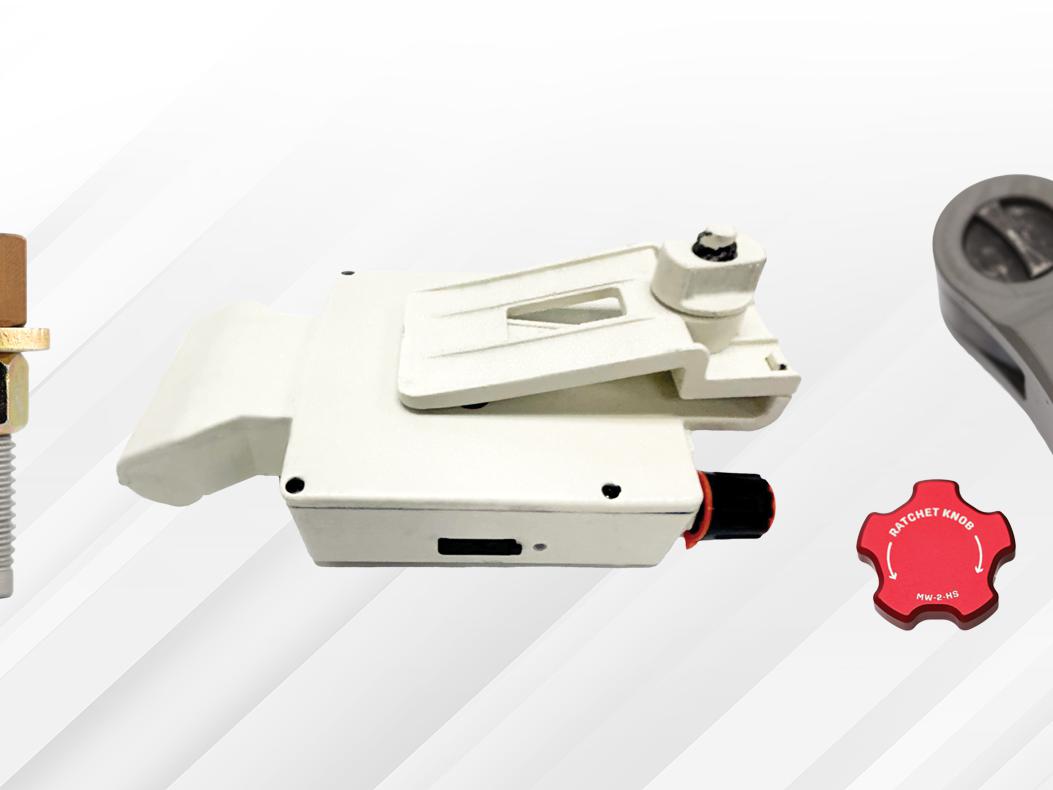Problem Solvers

A veteran promoter shares how he drew fans to his three Texas tracks last year, all while keeping everyone safe and at an adequate “social distance.”
THE Problem: How to effectively maintain social distancing among attendees at the race track
THE Solution: Utilize remote, text-based concession ordering and pickup; incentivize advance ticket sales for easier admissions
Leave it to a lefty to see the coronavirus pandemic as an opportunity.
“The second this COVID-19 thing came along,” explained promoter (and proud southpaw) Darin Short, “and I knew we were going to be down for a little bit, I thought, ‘Okay, let’s gear up on merchandise and online sales, and just go with the flow. But let’s also look at what opportunities we can have once this thing opens up.’”
That led Short, who runs his own marketing firm and promotes several dirt-track racing series at Texas-based venues like 82 Speedway, Kennedale Speedway Park, and Monarch Motor Speedway, to develop some inventive solutions to coronavirus-safety challenges, chief among them the need to maintain social distancing.
Text-Based Concession Ordering
The first of Short’s coronavirus-driven innovations is a simple, inexpensive text-based ordering system that eliminates lines at concession stands. Rather than using a complex, pricey app with credit card processing, his method instead relies on a low-cost app-based secondary smartphone line. This provides a dedicated business phone number to any smartphone running the app. Concession stand employees assigned to text-order duty can therefore use their own phone to handle text orders without having to give out their personal phone number.
For this, Short uses GoDaddy’s $9.99-per-month SmartLine service (godaddy.com/smartline), but other companies such as Sideline (sideline.com) and eVoice (evoice.com) offer similar packages.
“You simply give the SmartLine app and login to the employee of your choice manning that segment of your sales that night,” Short told us. “Customers just text and say, ‘I want a Sprite and a Snickers.’ Then the concession person quickly texts them back saying, ‘Order received, we’ll let you know when to come down.’ When the order is ready for pickup, they’re texted again. Customers then pick up their orders, pay for them, and go back to the stands.”
The menu for food items is posted on the track’s website, while signs throughout the track give fans the number to text and encourage them to order remotely. Although simple and inexpensive, the system has been a big hit, not only improving coronavirus-safety compliance, but providing a better customer experience as well. “The fans go crazy over it,” Short noted.

Spacing in the Stands, at Entrances
Short’s approach also fits well in solving the need for social distancing during races. To enforce the recommended six-foot guideline, Short simply blocks off every other row of the grandstands, then reminds fans about it several times via PA announcements. In doing so, he has turned a negative situation into a positive for attendees. “Fans look at this seating arrangement like it’s more of a VIP experience,” said Short. “It’s so much more relaxed with the extra room.”
To solve the potential problem of lines at entrances, Short has developed a method that emphasizes advanced ticket sales and carefully orchestrates entering the facility. It begins by enticing attendees to order online, which is done by discounting advanced tickets a few dollars, not charging additional fees, and allowing online ordering up until the day before the race.
It has proven to be an effective system, but implementing it is ultimately the job of those who manage the facility itself. “Track owners Shannon and Misty Kelton at Monarch Motor Speedway do a fantastic job operationally,” said Short. “We stay in touch multiple times a day as ticket sales come in to get ourselves organized for race day. Then, the afternoon of the race, they have a staff of people outside at the parking entrance, each with an accordion folder that has advanced ticket holders filed A to Z. That person just asks each carload, ‘Do you have advanced tickets?’ If the answer is ‘yes,’ the staff member checks the list and gives them wristbands. If the answer is ‘no,’ then they’re told to grab a parking spot until the ticket window opens. They basically take people by the hand. And then the fans literally walk in the gate, grab their beer, sit down, and enjoy the races.”
According to Short, the system has nearly eliminated crowds and ticket lines for large events. “There was some legwork,” he told us. “It took more time for people at the race track to do this. But it was free for the race track. And the fans went nuts for it. It could be 97 degrees that day, and they got to stay in their car with the air conditioning on.”
Unsurprisingly, Short views these measures as part of a larger effort to leverage the pandemic as an opportunity for auto racing. “This is the time for outdoor motorsports to shine,” he said. “The stick-and-ball folks can’t do their thing. So now that opens the door for auto racing venues to grab new customers. People can say, ‘Hey, this is a safe place for our family to go at this troubling time.’”
SOURCE
–
Darin Short
darinshort.com
 MEMBERSHIP LOGIN
MEMBERSHIP LOGIN JOIN PRI
JOIN PRI


